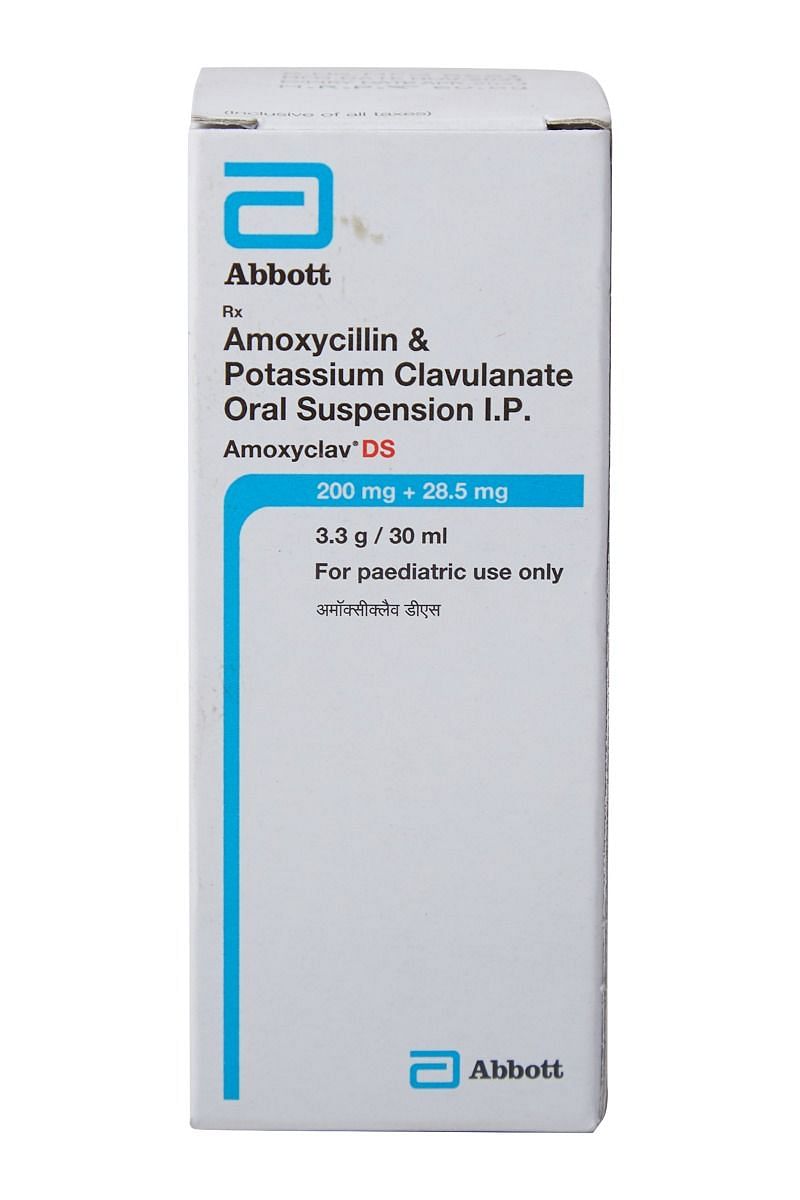
Stanzox CV Dry Syrup
Manufacturer
Medstanz Lifesciences
Salt Composition
Amoxycillin (200mg) + Clavulanic Acid (28.5mg)
Key Information
Short Description
Stanzox CV Dry Syrup is an antibiotic medicine that helps treat bacterial infections of the ear, nose, throat, chest, lungs, teeth, skin, and urinary tract.
Dosage Form
Dry Syrup
Introduction
Stanzox CV Dry Syrup is an antibiotic medicine that helps treat bacterial infections of the ear, nose, throat, chest, lungs, teeth, skin, and urinary tract. It is capable of killing bacteria that have become resistant to other therapies and thus also helps treat tuberculosis that is resistant to other treatments.
Directions for Use
Take this medicine in the dose and duration as advised by your doctor. Check the label for directions before use. Dissolve the powder in sterile water. Shake well and use. Stanzox CV Dry Syrup is to be taken with food.
How it works
Stanzox CV Dry Syrup is an antibiotic. It has two active agents amoxycillin and clavulanic acid. Amoxycillin works by preventing the formation of the bacterial protective covering (cell wall) essential for the survival of the bacteria. Whereas clavulanic acid serves a special purpose of inhibiting an enzyme (beta-lactamase) that is produced by resistant bacteria. This makes the combination of amoxycillin and clavulanic acid an effective line of treatment for many types of infections.
Quick Tips
Your child must complete the entire course of antibiotics. Stopping too soon may cause the bacteria to multiply again Your child may have a bitter taste in the mouth after the intake of Stanzox CV Dry Syrup. Eating citrus fruit or sipping plenty of water or fruit juice may help. Encourage your child to drink plenty of water in case diarrhea develops as a side effect. Never give Stanzox CV Dry Syrup until and unless prescribed by the doctor. You must also never share your child’s medicine with anyone else even if they show similar symptoms. Do not give Stanzox CV Dry Syrup to treat common cold and flu-like symptoms caused by viruses. Never save medicine for future illnesses. It cannot be said whether the same medicine will work on future infections. Check ‘expiry’ before giving Stanzox CV Dry Syrup to your child. Immediately discard all the expired medicines. Stop Stanzox CV Dry Syrup immediately if your child develops an itchy rash, facial swelling, or breathing difficulty. Report to the doctor without any delay.
Related Medicines

Amoxyclav Dry Syrup

Moxikind-CV Dry Syrup

Advent 228.5mg Dry Syrup Tangy Orange

Boldclav Dry Syrup

Moxiphar-CV Dry Syrup

Moroxil CV Dry Syrup

Clavica Dry Syrup

Moxtive Clav Dry Syrup

Moxypoc CV Dry Syrup

Moxit CV Dry Syrup
Frequently asked questions
Can other medicines be given at the same time as Stanzox CV Dry Syrup?
Stanzox CV Dry Syrup may interact with other medications or substances. It is essential to inform your child's healthcare professional about all other medications being taken before starting treatment with Stanzox CV Dry Syrup. This will help ensure safe and effective medication use.
Can I get my child vaccinated while on treatment with Stanzox CV Dry Syrup?
Generally, antibiotics do not interfere with vaccines or cause adverse reactions in children after vaccination. However, it is important to ensure your child recovers from the illness before being vaccinated. Once your child feels better, they can receive the vaccine.
Which lab tests may my child undergo while taking Stanzox CV Dry Syrup on a long-term basis?
During prolonged therapy with Stanzox CV Dry Syrup, periodic monitoring of kidney and liver function tests can help assess the condition's progression.
Can I give a higher than the recommended dose of Stanzox CV Dry Syrup to my child?
Giving a dosage higher than the recommended amount can increase the risk of adverse effects. If your child experiences increased symptoms, consult your healthcare professional for re-evaluation.
Can I stop giving Stanzox CV Dry Syrup to my child when the symptoms are relieved?
It is crucial not to discontinue treatment with Stanzox CV Dry Syrup before completion of the prescribed course, even if symptoms improve. There may be benefits for your child from continued use, and it's essential to ensure complete cure.
Can the use of Stanzox CV Dry Syrup cause diarrhea?
Yes, Stanzox CV Dry Syrup can cause diarrhea. This is a common side effect because it kills harmful bacteria and can disrupt the balance of helpful bacteria in the child's stomach.
Do all viral common colds result in secondary bacterial infection?
Most viral common colds do not cause secondary bacterial infections. It is vital to avoid antibiotic use unless directed by a healthcare professional, as this can increase the risk of side effects.
The mucus coming out of my child’s nose is yellow-green. Is it a sign of a bacterial infection?
Yellow or green discharge from the nose during a common cold is a normal occurrence and typically does not indicate a bacterial infection. Symptoms often subside within 7 to 10 days.
Is there any sign which shows that my child needs immediate medical attention?
Call your child's doctor immediately if they experience serious allergic reactions (breathing problems, skin rashes), gastrointestinal infections (diarrhea), or liver damage (weakness, pallor, vomiting). These are rare but severe side effects and require immediate medical evaluation.


